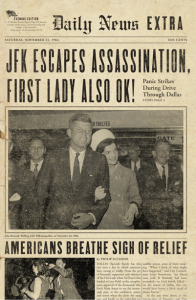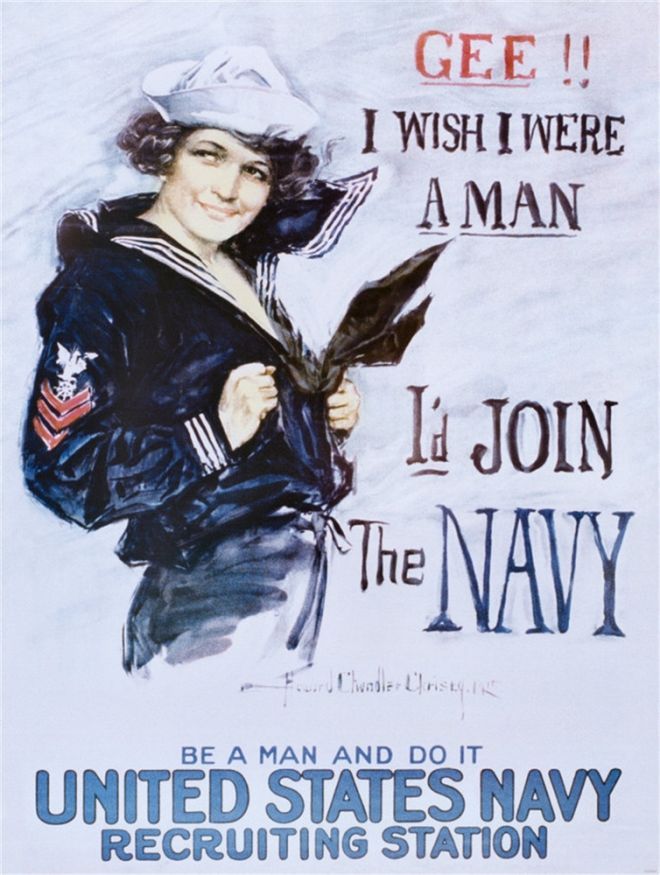Alternative History
TGForum readers that are history buffs may be familiar with an increasingly popular literary genre called “alternative history”. At its best, this can be a fascinating exercise in examining history as it might have occurred, after making one simple (but critical) change to an event in the actual historical timeline.
To take one obvious example–how might the 1960s have progressed, if President Kennedy had not been assassinated? Would he have been reelected in 1964? If so, would the United States have avoided taking on a direct combat role in the Vietnam War? Would the domestic upheavals pertaining to civil rights, the sexual revolution, student unrest, immigration reform, etc. have been managed better by him than by Lyndon Johnson?
Or would JFK’s now well-known personal and political scandals have eventually undermined his leadership and created more and bigger problems, domestic and international? Against this backdrop, would Barry Goldwater have still secured the Republican nomination in 1964 and–even after a most thorough electoral defeat–galvanized the nascent conservative movement, permanently altering the American political landscape?
These and other possibilities can never be known for certain. But it illustrates the point that one different decision, one fluke of nature, introduced at a key moment, can have decisive ripple effects. Obviously, the larger conditions of the era don’t change much (all of the factors that made the 1960s into “The Sixties” were fully in place before JFK’s death in November 1963); however, the role of free will does come into play, with significant results.
At my age, it’s now possible to look back at my own life and see many such potential turning points, and examine what might have been. But like many readers, I have occasionally considered one tantalizing prospect in particular: What if–in addition to being a woman by conviction–I had also been a woman by nature, born with that precious second X chromosome? How, all else being equal, could my life have been different?
On the surface, it seems like the obvious result would be sunshine and roses. I could have worn the clothes I liked from the outset; looked into the mirror and seen what I have always longed for reflecting back at me; openly participated in and enjoyed activities that I felt I had to indulge in secretly and with shame; not had to endure any awkward transition process; these and many other inconveniences petty or significant could all seemingly have been avoided.
But this ignores other factors that make up my life experience. For starters, I would have been nurtured differently. Sibling rivalries and parental influences would have been completely opposite to what they were. As a child, the friends I made in my neighborhood and at school–and the activities I participated in as a result–would certainly not have been the same.
How about adolescence? My dating history would have been totally altered. I also would have been interested in different aspects of culture. What peers, adults, leaders, and other role models might I have aspired to imitate? Maturing into adulthood, there would have been different life, marriage and career paths for me. It’s impossible to assess the vastly different human being I would have become. (Who knows; maybe I would have grown up to be a jaded, cynical adult woman, bemoaning how much more convenient life seems to be as a man.)
All this and more may well be true. In my male childhood, I certainly missed out on having girlfriends to socialize with, and never began learning the ropes of female life. However, this separation probably helped me develop an idealized view of women and femininity. To this day I have retained a sense of awe, wonder and even innocence in this regard. Like all of us, I have met my share of women who did not always live up to such standards; this has not scandalized me.
As an adolescent, driven to prove my masculine credentials (mostly for the express purpose of being taken seriously by the girls), I gravitated to sports and other games, at the expense developing deeper personal relationships. I still feel socially awkward at times, trying to re-focus my behavior in this direction. But the competitive aspect of male sport–in my case, football–definitely gave me the self-confidence needed to face life’s challenges.
Just as importantly, I learned how to handle adversity and loss, as well as how to win gracefully. That has served me very well in in everyday life–especially in a feminine milieu, where the process and the journey is often more important than the end result, and cooperative skills (i.e. teamwork) are valued more than being right.
My young adult years were spent single, working many hours to fill the void. (I attempted full-time for two years after college, with part-time jobs on the side, before ultimately accepting an entry-level position at a technology company.) Although I was often lonely, I did learn self-reliance, fiscal discipline, and a solid core of administrative skills. That opened up a career path which directly led to my current position as an IT project analyst. My professional communication standards are highly valued in this role, and helped make it possible for me to be respected in business as a feminine person of masculine origin.
In my 30s, I devoted my spare time to a genuine interest in history, finance and theology, when I might otherwise have studied art, culture, fashion, design and celebrities. But this taught me the greater value of the permanent over the temporary, as well as the importance of choosing long-term benefit over short-term gain. (It may also have prepared me to better see through the shallow appeal of what passes for much of pop culture, political movements, social networks, consumerism, or some of the more vapid women’s magazines!)
When I finally began the transition process in my 40s, this included a significant amount of volunteer work. I made a genuine effort to earn my place (that male work ethic, I suppose)–offering my time and service in several women’s groups, all of which were happy to have me involved. One unexpected benefit of this increased feminine immersion and reinforcement was a recognizable improvement in my appearance, after I finally felt free to discuss clothes, makeup, hair and so much more with the natural experts.
Perhaps my masculine life experience prepared me to effectively present my feminine self to the world, and be prepared to face the consequences–good, bad and indifferent. It also conditioned me to be able to bear solitude (is that ever a valid skill now), effectively handle pressure, and prioritize what is really important.
I am consistently treated as a lady, with public respect and personal courtesy–everywhere from large multicultural cities, to more traditional and rural communities in Montana and the Deep South, to name just a few. I am trying to make the most of my endowments, and create a viable niche in a woman’s world. All of this has been made possible in large part by being deprived of what I could have had instead (i.e. two X chromosomes), but perhaps would have undervalued.
Alternative history books usually serve one of two purposes: They are either 1) a cautionary tale of how much worse things could have been than they actually were; or 2) a demonstration of how things would largely have had the same end result, even if they had ultimately arrived there by a different path. The main point is that we should all be grateful for the reality we know, compared to the infinite alternatives we’ll never know.
All things considered, I happily accept the real-life outcome, and consider myself quite blessed to have experienced what I have and be where I am. Hopefully the future alternatives will be just as bright!
Like to make a comment? Login here and use the comment area below.
Category: Transgender Body & Soul






